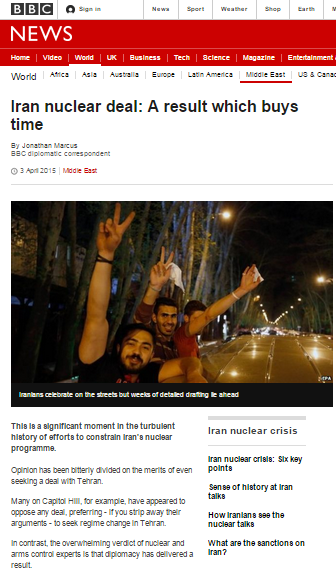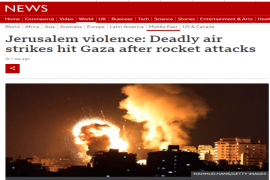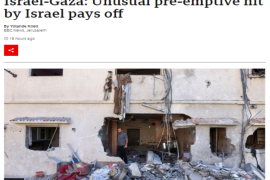On April 3rd an article titled “Iran nuclear deal: A result which buys time” by diplomatic correspondent Jonathan Marcus appeared on the BBC News website’s Middle East page.
Setting aside the analysis of the subject matter itself, the article includes inaccurate phrasing which misleads audiences.
“If all goes well, the nuclear deal will reduce a key source of friction between Iran and the West.
There will still be many other areas of disagreement. Indeed, Iran remains the rising regional power and its influence in many Arab capitals ranging from Damascus and Baghdad to Beirut and Sanaa – let alone its human rights record and alleged support for terrorism – all suggest many other avenues for continuing tensions with Washington.” [emphasis added]
The word ‘alleged’ (meaning said, without proof, to have taken place) is of course completely superfluous in that sentence. Iran’s record of material, financial and ideological support for internationally recognized terrorist organisations such as Hizballah, the Palestinian Islamic Jihad and Hamas is well documented.
When a senior BBC correspondent misleads audiences in such an obvious manner, the corporation’s funding public’s trust in its level of commitment to its defined public purpose of building “a global understanding of international issues” can only be undermined.




